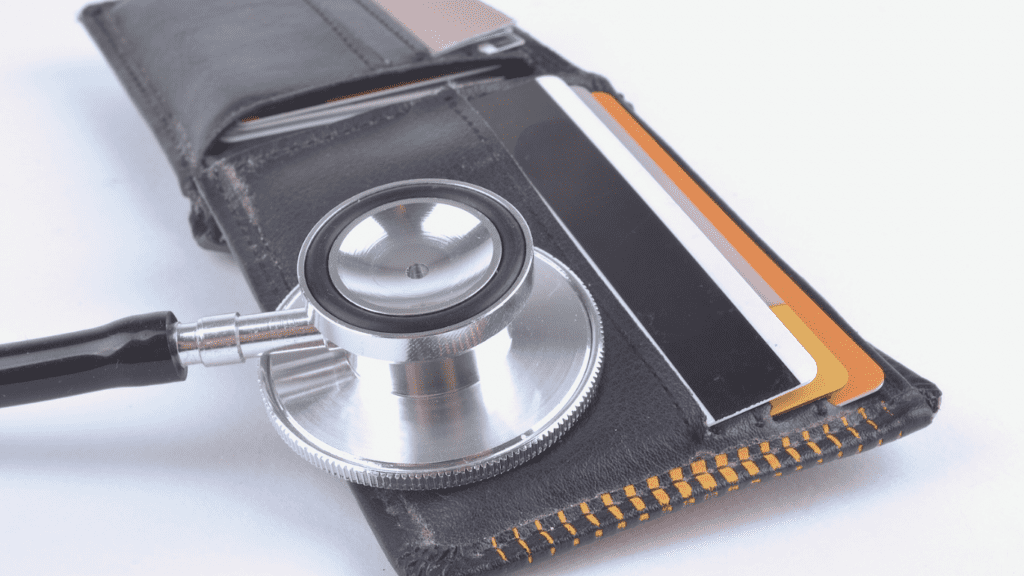Personal Finances for Nurses: Managing that Nurse Money
Some of the links within this article may be affiliate links. Meaning, I may earn a commission if you make a purchase after clicking on said link at no extra cost to you.

So you just became a nurse, and you’re making that “nurse money” now, but aren’t entirely sure of the best method for managing your personal finances yet? Or maybe you’ve been a nurse for some time now and are still truing to figure out the best system for managing your personal finances as a registered nurse. If either of those describes you, this blog post is for you. This blog post will cover all things about managing personal finances for nurses, and then some.
From creating a budget and reducing debt, to investing, saving, and planning for long term goals. Health care workers are in a unique position, financially. Therefore, need a unique plan when it comes to managing personal finances for nurses and other health care workers.
Budgeting: Creating a Budget to Manage Your Personal Finances for Nurses
The first steps that any blog post about managing personal finances will tell you that you need to take is creating a budget. So you probably expected this one. But the difference here, is that I know how hard it is to stick to a budget that is planned down to the penny as a nurse. When you work in the hospital your pay checks can vary, making it hard to plan so specifically from paycheck to paycheck.
From shift differentials and incentivized pay to over time or being on call, the wages can definitely vary from week to week in the nursing world. Sure, you can usually learn to expect what your paychecks will be. But creating a budget as a nurse takes some finesse. So I’m going to give you a few tips on budget creating for nurses. Some are things that I do every pay day to keep my personally finances in line. Others are methods that I know are also effective, and might be the best fit for you.
First, write down all of your non-negotiable monthly expenses or needs that have a fixed amount. Such as mortgage, car payment, insurance, gym membership, subscriptions, etc. Next, write down all of the variable monthly expenses such as gas, groceries, and utilities. Look at the past 3-6 months of these bills and figure out a good average that you pay for these expenses and that will give you a good idea of how much you will need to set aside.
Now, I will tell you about two different options of ways that you can plan for your monthly budget.
Option 1: Utilize the first paycheck of each month to pay for the next month’s non-negotiable expenses that have a fixed amount. If your paycheck can allow it, with some money left to spare for the variable expenses. That way, your second paycheck of the month (If you get paid every other week), can either go toward debts you’re working to pay down, savings, or put toward the next months expenses to help you get ahead.
Option 2: This is the option that I tend to do most months, but will use option 1 sometimes, depends on what I’m expecting my paycheck to look like. I divide my fixed monthly expenses by two, and put aside half off the amount I need in the first paycheck of the month and the other half from the second paycheck.
In order to keep track of each expense and how much money I have set aside for them, I utilize PayPal as my primary banking platform. To learn more about how you can use PayPal to keep your personal finances in order from month to month, check out my blog post that breaks it all down.
*side note* I work in a PRN position, meaning I don’t need to work full or even part time hours each week. I can work what ever hours each week, which more often than not is full time hours for me. The perk being that I don’t need to request time off when I would like to take an extended vacation from work. The downside being I don’t get PTO while on that extended vacation. Which is why my paychecks vary.
7
Reduce Debt
More often than not, new grads come out of nursing school shouldering some amount of debt. Whether it’s student loans or credit card balances that were just waiting for the day you graduated and started making that nurse money. I was incredibly lucky in that I didn’t need to take out any student loans. I only had credit card debt to tackle once I graduated.
It’s important to quickly master the art of balancing your desire to treat yourself to things you’ve been wanting to buy and maintaining low to no debt. You’ve just busted your butt for two plus years in nursing school. Absolutely treat yourself to something nice you’ve been wanting for some time. But don’t be like me and quickly take advantage of your increase in pay from prior to becoming a nurse, and let your spending go a little overboard.
The four biggest tips that I can give you for managing and reducing debt as a nurse are…
- Don’t open more than two credit cards. Yes, two. More to come on the rationale behind that.
- Don’t avoid looking at your balance because it stresses you out. Keep a close eye on your credit card balance(s)
- Don’t put debt off to your future self, more than you really need to. Future you doesn’t need that stress!
- Understand wants versus needs, and don’t become too comfortable with swiping your credit card.
Investing for the Future
When it comes to investing for your future, this can look a number of different ways. If your employer has a 401k option you could take advantage of that (highly recommend) or you can open an IRA account on your won and put money into it from every paycheck.
Want to further demystify different retirement savings options? Check out my blog post about why you should start saving for retirement in your twenties.
Having an employer with retirement options takes a lot of the work and out of finding the right account to invest your money into for retirement. From IRA’s to CDs, there are plenty of options beyond a 401k, but often a 401k offers a percentage matched by your employer. If the option is there I would highly recommend the 401k option when it comes to planning for retirement.
Saving for Emergencies
Your credit card should not be your “emergency fund”. I repeat, your credit card is not your “emergency fund”! It can be used in an emergency, but if you weren’t prepared to have to buy four brand new tires for your car, you don’t want to have to deal with that large purchase sitting on your account as a debt for how ever long it may take you to pay it back. Tires should be the least of your worried when it comes to needing an emergency fund, but just wanted to throw that out there as an example.
Dave Ramsey recommends having a minimum of $1000 set aside for emergencies. Just to start with. Ideally, a fully funded emergency fund will be able to cover 3-6 months worth of your monthly expenses. You want to consider worst case scenario situations, even if they are highly unlikely. In the event that you never experience such a situation, you will then have that much more money set aside for your future!
Planning for Long-Term Goals
Lastly, I will touch a little on saving for long-term goals now that you are making nurse money and you are that much closer to these goals! There are three main steps to setting yourself up for success when planning for long term goals.
- Define Your Goal: Be specific and set a realistic time frame to achieve that goal
- Explore Different Accounts to Use for Savings: Such as high-yield savings, CD, or other types of investment accounts that will use your money to make you more money over time.
- Develop a Saving Strategy: Automate payments from each paycheck or gradually increase the amount of money you are adding to the account over time.
Once you follow these steps and develop a plan that works for you, it’s important to keep tabs on your accounts regularly. Staying aware of interest rates as well as changes in fees and other regulations that your bank might throw your way under the radar.
Conclusion
I really can’t stress enough, how important it is for nurses to be intentional with their personal finances from day one. You work too hard to let your money fly right out of your bank account before you even really know that you had it there to begin with. Take control of your finances From day one, and set your path for future success. Avoid suffocating amounts of debt and prepare for a comfortable retirement that will be well-deserved!
What financial goals are you setting for yourself this year? Share your thoughts in the comments below!







Join the List
Stay up to date & receive the latest posts in your inbox.